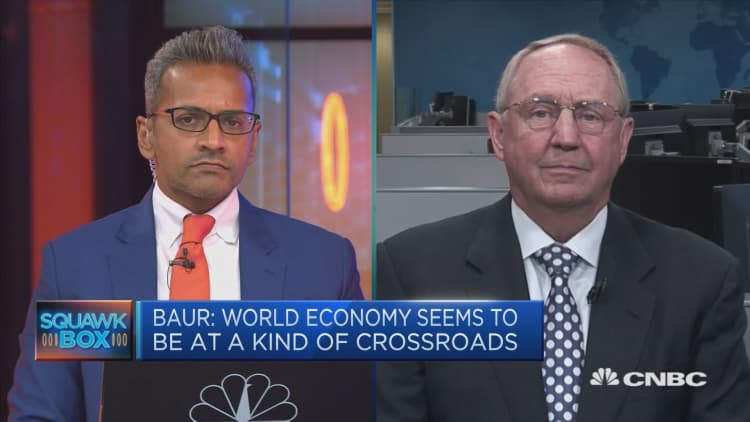U.S. President Donald Trump's comments that call for a weaker U.S. dollar are "short sighted," an economist told CNBC's "Squawk Box" on Friday.
Trump has often said the U.S. dollar is too strong against foreign currencies — what he describes is a result of other countries unfairly devaluing their currencies against the dollar.
A stronger U.S. dollar makes American exports more expensive and offshore imports cheaper, worsening the U.S. trade deficit. To Trump, that puts America at a "big disadvantage" globally.
"I think it is certainly true that Donald Trump would like a weaker dollar. But I think that's really kind of short sighted," said Bob Baur, chief global economist of Principal Global Investors.

Baur noted that changes in the U.S. dollar are natural responses to the global economy.
"Over the last year or so, as the world slowdown had gotten worse, then the dollar strengthened."
"But I think we're kind of in a period where the dollar is going to get a little weaker, just naturally. That's part of the flow of global growth," he said.
As of Thursday, the U.S. dollar index, which measures the greenback against a basket of six major currencies, was up 2.32% from July 11, 2018, when it was at 94.72. It was at 96.92 on Thursday.
Baur predicted that the economy could moderate a little more, but the slowdown was heading to an end.
"The signs are that we'll get a little better growth this quarter and next quarter, and that would tend to bring the dollar just a little weaker," Baur said.
However, he said direct intervention in the dollar from Washington isn't in the cards.
"That really gets you in some dangerous territory when you've got a reserve currency and you're trying to manipulate the value of it yourself," he noted.
That comes on the back of a Bloomberg report on Wednesday, which said Trump reportedly asked aides to find a way to weaken the U.S. dollar.

